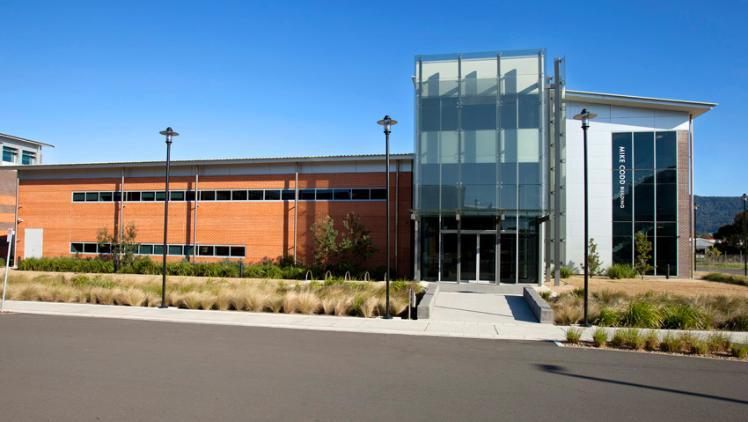The Palliative Aged Care Outcomes Program commenced in 2021 in response to the Royal Commission into Aged Care Quality & Safety's recommendation that a national approach should be implemented to support high quality palliative care delivery in aged care homes. Learn more about PACOP’s history, program objectives and our team.
History
The national team and collaborating researchers from the Palliative Care Outcomes Collaboration have been working in conjunction with residential aged care for some time. This work was supported by a philanthropic grant in 2019 from the J.O and J.R Wicking Trust, which enabled early development, modification and piloting of the ‘PCOC Wicking Model’ for Residential Aged Care in a number of aged care homes.
In 2021, AHSRI was awarded grant funding under the Australian Government’s program ‘Primary Health Care Quality and Coordination: Improving Palliative Care Training and Outcomes in Aged Care’. This funding has enabled the creation of PACOP as a sister centre to the well-established PCOC, with the aim of systematically improving palliative care outcomes for people in aged care homes and their families.
This new program aims to systematically improve the end of life and palliative and care outcomes of residents in aged care homes, including pain, symptom control and psychosocial distress and the outcomes for resident’s informal carers and family. The program is made up of three modules—the Profile Collection, the Outcomes Collection and Snapshot Collections. The use of standardised clinical assessments at the resident’s bedside to inform the required care is the essence of the program. An added benefit of PACOP is the use of the assessment information to drive improvements in the care that residents and their carers receive at an organisational level. PACOP builds on the significant experience we have had in PCOC in driving improvements in outcomes in palliative care. PACOP will benefit all Australians in residential aged care by providing a consistent and nationally agreed framework which drives resident, provider, policy and systems-level improvements in palliative and end of life care.
PACOP supporting Aged Care Homes in optimal palliative care for their residents, families & staff
Meet Joy. Joy is one of many older Australians who use residential aged care services. Joy recently moved into an aged care home as she's become more frail and she needs more support in her day-to-day life. Joy's aged care home is participating in PACOP the Palliative Aged Care Outcomes Program. PACOP was developed at, and sits within, the University of Wollongong and is fully funded by the Australian Government Department of Health and Aged Care. PACOP has a national approach to systematically improve palliative and end-of-life care for residents living in aged care and their families. The final report from the Royal Commission into Aged Care Quality and Safety identified palliative and end-of-life care as core business for aged care providers. It recommended that high quality palliative care should be addressed through upskilling staff, implementing clinical processes and governance for early recognition of deterioration and dying in older persons. PACOP supports aged care homes to implement high quality palliative and end-of-life care through the use of two components; the Profile Collection and the Outcomes Collection. The Profile Collection is the core component of PACOP and supports early identification of deterioration and palliative and end-of-life care needs. Aged care homes implement a framework of routine standardised assessment of residents every 3 months and at times of concern. This ensures no significant changes in Joy's health will go unnoticed. Routine monitoring and screening for escalating care needs within an aged care home's population supports aged care providers and staff to understand needs, both at a service level and at an individual level, for residents and their families and carers. When residents like Joy have identified palliative care needs they are then commenced into the second component of PACOP; the Outcomes Collection. The Outcomes Collection provides point of care assessments of palliative care needs including symptom distress and problems experienced by the resident and their family or carer and is supported by an evidence-based clinical response protocol that guides timely responses for aged care staff to address identified needs. In this collection, outcomes from the care provided are reported back to aged care homes for continuous quality improvement projects. PACOP assessments are entered into an IT system where key clinical information including assessment scores are deidentified and then sent to PACOP every 6 months through a secure online submission portal. The data is then analysed and a report is returned to the aged care home and aged care provider. This report feedback allows aged care providers to monitor trends in resident care and identify areas to improve services for residents and their families and carers. These areas can then be measured for improvement in the next report cycle. State and National reports will also be made available and in time National benchmarks for optimal palliative care standards in aged care will be developed. PACOP is implemented using a train the trainer model ensuring sustainability of workforce training and engagement with staff in aged care homes. PACOP provides ongoing access to a wide variety of free education and training resources which provides flexibility and supports aged care homes to develop education activities that are suitable for their staff and resources. PACOP provides ongoing support to participating aged care homes through a Community of Practice model and linking aged care providers with specialist palliative care services and palliative Care educational and advocacy organisations within their community. Participation in PACOP allows aged care homes to develop a body of evidence demonstrating ongoing quality improvement initiatives and evidence of working towards achievement of national aged care quality standards. PACOP participation is free and supports the delivery of optimal palliative care through collaboration with residents their families and carers, aged care staff and aged care organisations to improve quality of life and palliative and end-of-life care outcomes. You can find out more about PACOP's free program and resources via the PACOP website where you can submit an inquiry to be connected with the PACOP team.
Get to know our team
- Professor Claire Johnson, National Director
- Laura Bryce, National Quality & Education Manager
- Stephen Moules, Associate Research Fellow
- Bronwyn Arthur, Improvement Facilitator
- Kaitlyn Thorne, Improvement Facilitator
- Natalie Joseph, Improvement Facilitator
- Simon Hore-Thorburn, Improvement Facilitator (VIC)
- Max Grigg, Data and IT Technical Support Officer
- Zoe Knight, Senior Administrative Officer
- Julieanne Young, Administrative Assistant
Professor Claire Johnson (RN, PhD) is the National Director of the Palliative Aged Care Outcomes Program (PACOP). Claire led the national implementation of the PCOC/Wicking model for Residential Aged Care. As the recent Vivian Bullwinkel Chair of Palliative Care Nursing (Monash University - Nursing and Midwifery) and Clinical Lead for End of Life Care (Eastern Health, Melbourne, Australia), Claire directed an extensive portfolio of clinical, behavioural and translational research. This research has helped to improve the quality and safety of care, and outcomes for people diagnosed with a life-limiting illnesses and of their families and carers, irrespective of the setting of care. Claire’s experience in clinical settings, research and leading change has equipped her to promote excellence in the care of people dying in residential aged care.

Laura has over 12 years of experience as a Registered Nurse and has worked across all areas of health service delivery including tertiary hospitals, primary care and aged care settings. During this time Laura has developed a passion for education and quality improvement and completed her Masters of Nursing Degree with a major in Clinical Education. Laura’s most recent roles include working in Clinical Management positions within Aged Care where she was responsible for planning and overseeing clinical care delivery, multidisciplinary collaboration, clinical policy development, and quality improvement programs.
Stephen first joined AHSRI in 2019 as a Research Assistant. He currently provides Analysis/Statistics support PACOP. Stephen has obtained a Master of Statistics and a Bachelor of Science (Physics) at the University of Wollongong.
Bronwyn Arthur joined PACOP as an Improvement Facilitator in March 2022. She holds a Master’s Degree in Palliative Care in Aged Care. Bronwyn is a Registered Nurse, and has worked in various roles in her career, namely as a Clinical Educator and a Clinical Nurse Practitioner. Her main focus has been in the care of people living with dementia and end of life care; she has a history of working in palliative care, the acute setting and in aged care homes.
Kaitlyn is has over 10 years’ experience as a registered nurse, graduating from the Queensland University of Technology in 2012 with a Bachelor of Nursing. She has extensive experience in aged care and palliative care, both in the community and care home setting. Kaitlyn has also spent significant time working in the not-for-profit and charity sector in Queensland. In 2022, she graduated from the University of Tasmania with Graduate Diploma of Health Services Management.
Natalie Joseph is an Improvement Facilitator with PACOP. She is a registered nurse with over 13 years experience in a variety of clinical settings. This includes working in residential aged care for 6 years as the Clinical Lead for a large aged care organisation during which time she was responsible for setting up and providing clinical direction and governance for a dedicated palliative care unit. She has over 3 years experience working as an Improvement Facilitator for PCOC and was involved in the development of the PCOC Wicking program. She also holds a Graduate Diploma in Palliative Care from Flinders University.
Simon is a Registered Nurse with a passion for Palliative Care. He has practiced in specialist Palliative Care in both rural and metropolitan centres in NSW. Simon also has a passion for education and has worked in clinical specialist and training roles for clinical trials and medical device companies in the UK. Prior to joining the PACOP team, Simon was a Project Officer at Palliative Care Victoria, focusing on cultural safety for Aboriginal and Torres Strait Islander community members accessing Palliative Care services.
Max has worked for the AHSRI IT Team for over three years as IT support for the outcome centres including the Palliative Care Outcomes Collaboration (PCOC) and the electronic Persistent Pain Outcomes Collaboration (ePPOC). Max joined PACOP in January 2023 as Data and IT Technical Support Officer after assisting in the design and development of palCentre for PACOP. Max brings his in-depth understanding of palCentre and IT to support aged care homes implement palCentre.
Zoe joined AHSRI in 2022 and provides administrative support to the Palliative Aged Care Outcomes Program.
Julieanne joined PACOP in 2024 and provides administrative support to the Palliative Aged Care Outcomes Program
PACOP will support aged care homes to identify those residents and, by extension, their families with palliative care needs and ensure care is responsive to these needs. We will help aged care organisations embed standardised outcomes assessment and to use it to improve the quality of care for the dying.Professor Claire Johnson Image description: Dr Claudia Bausewein (left) and Professor Claire Johnson (right) at the PCOC Outcomes and Benchmarking Conference 2019
Contact us
Palliative Aged Care Outcomes Program
c/o Australasian Health Outcomes Consortium
Building 232, Level 2 (Mike Codd)
Innovation Campus
University of Wollongong
WOLLONGONG NSW 2522
Phone: (+61) 02 4239 4151
Fax: (+61) 02 4221 4679
Email: pacop-enquiries@uow.edu.au
Submit an enquiry to the PACOP team
Visiting PACOP
